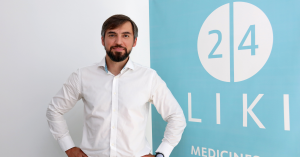During the last 18 months, COVID-19 urgently and uncompromisingly has put mental health on the agenda of companies – big and small. The pandemic created a shared feeling of uncertainty across countries and industries, making most workers, managers, and business leaders concerned about their future working places, reduced hours and benefits, or wage cuts.
Work-related stress can cause poor health, lack of concentration, deviations in performance, and decision-making difficulties. In 2019 the World Health association even labeled burnout as an official medical condition.
A recent survey focused on Bulgaria explores what are the psychological effects of the last 18 months on the workforce and how they affected their mental well-being.
If you live in Bulgaria, you can take part in the survey until the 21-st of September and contribute to creating a source of information for decision-makers and leaders. The idea is to help them improve the mental well-being of their employees.
The survey is organized by the Bulgarian business publisher Economedia and the organizational development consultancy company InManagement.
The results will be revealed during a webinar about Mental Health in the workplace, organized by news media Capital and Karieri (part of Economedia portfolio), that will take place on the 30th of September at 16 o’clock EST. The working languages will be English and Bulgarian. You can register for the event here.
Some of the topics that will be covered include what are some ways to reduce work-related stress and anxiety, what is the role of the manager within the context of mental health, how to help teams deal with uncertainty and performing under pressure, as well as how to address conflicts within the organization.
The keynote speaker will be the CEO of the Workplace Mental Health Institute Peter Diaz. His team aims to help organizations enhance their performance, productivity, and profitability by strengthening employee mental health, wellbeing, and resilience.
The Recursive is a partner of the event and our team will be moderating one of the discussions.








